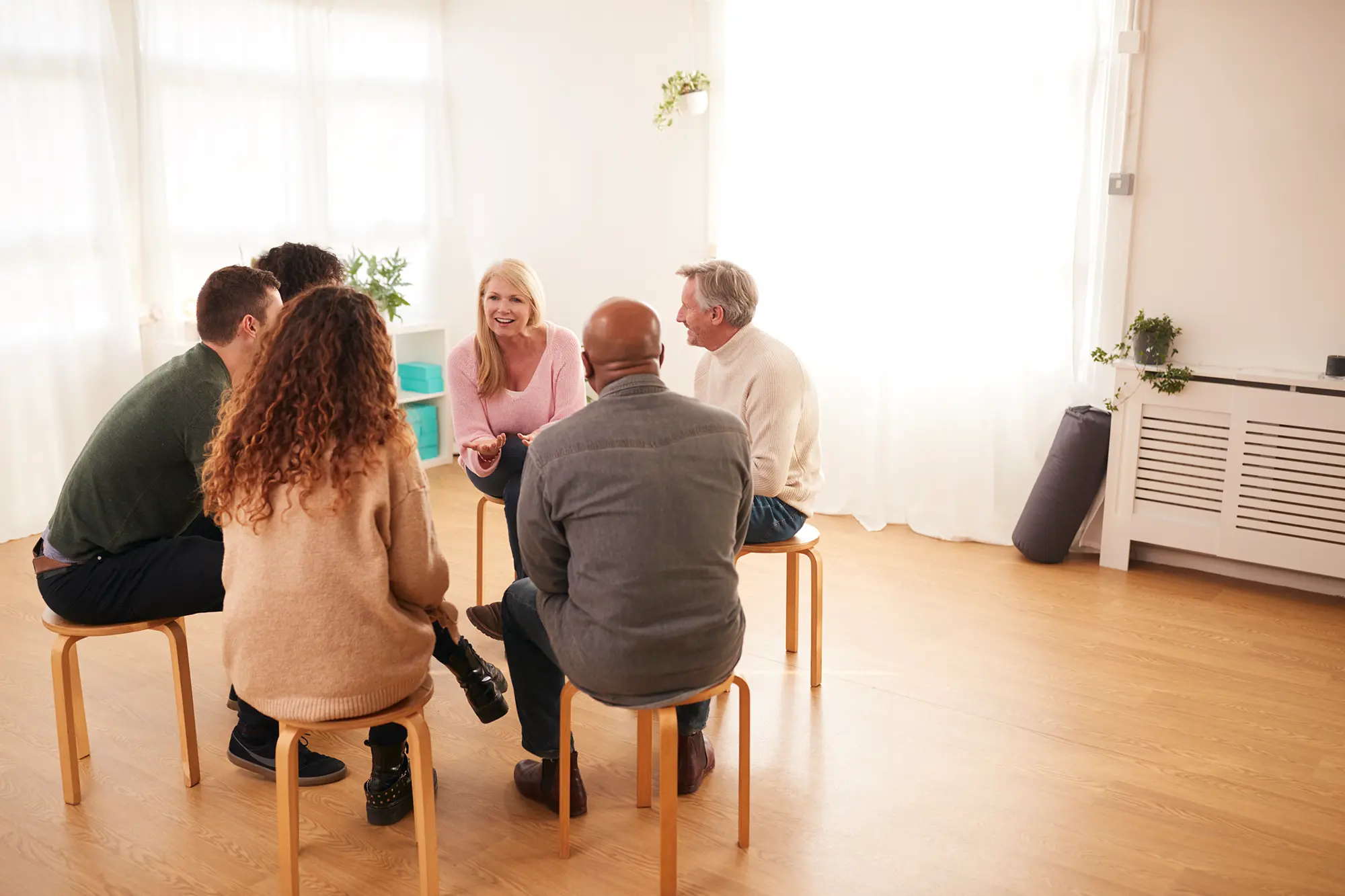Find an Accountability Partner in Life
May 1, 2024
Have you ever felt that you were letting other people determine what kind of day you were going to have? If they were angry, you got angry. If they were happy, you jumped on the same happy wagon.
Psychologists call this phenomenon “emotional contagion” or “mood transference,” which is described as having one person’s emotions directly trigger similar emotions in other people. If brief encounters with others’ emotions can influence us so strongly, just imagine the long-term effects of the people we spend time with on a regular basis. Each of those interactions accumulate over time to help shape us into who we are.
It matters tremendously who we allow into our lives! We can’t always select the people who fill our lives, but in most instances, we can choose who to get close to and who to keep our distance from.
Think for a moment about the people whose company you value and cherish. Recall those who make a positive difference in your life. They are interested in you and invested in you. They share their lives with you and encourage you to do the same. They pick you up when you fall.
The most fulfilled marriage relationships, dating relationships, and friendships involve people who genuinely want each other to experience a life of happiness, meaning, and fulfillment. They offer continual encouragement and look for practical ways to help the other person excel. It is this collective strength that contributes to the greatness of a supportive, mutual relationship.
As we find friends who will challenge us to something better, support us in all our attempts, and cheer us in our achievements, we need to deepen those relationships. We all need people around us who will, without being judgmental, call us to a bigger, bolder life—who will help us move out of our comfort zones and take giant steps forward. We need people who will accept us for who we are and challenge us to pursue our goals with energy and determination. One place to start is by finding an accountability partner in life.
Each of us needs someone with whom we are fully accountable. This is a person who knows us, accepts us, loves us, and will be honest with us. How does this idea strike you? In our individualistic, isolated society, many people like to “go it alone,” with an attitude that says, “I don’t need anyone poking around in my life. I’m doing just fine on my own.”
But often these people are not really doing “just fine.” When we are not accountable for our own actions, we make choices that hinder our growth and thwart our progress. One of your greatest fears may be of “being known” by another person. Yet, without facing this fear, you may be missing out on some of God’s greatest blessings in your life.
Many people resist the idea of being accountable because they misunderstand what that word means. Accountability is not about judgment, retribution, keeping score, or being controlled. Nor does it mean handing over to someone else more power or influence than they should have. In truth, accountability is:
- The willingness to invite someone—a trusted someone—to see into your life, even the places you would prefer to keep hidden.
- The practice of vulnerability and honesty, being willing to tell the truth, and being receptive to feedback—even when the truth may be uncomfortable.
- The determination to take specific healthy action, without excuse or regret.
- The purposeful decision to be your very best self, with the help of someone who will come alongside to share your journey.
When we feel we are damaging the quality of our lives with destructive habits or harmful choices, this is usually the first sign of a need to change and to begin taking responsibility for our lives. But we’re usually not strong enough to do it alone. That’s why we need nonjudgmental, supportive people who will ask us tough questions and support us through the agreed upon actions.
Let’s say your struggle is a bad temper that results in explosive outbursts, often at people you love. You yell at your children, berate your spouse, and lose your cool with friends. Of course, you know this is not respectful, healthy behavior, and you desperately want to change. In confidence, you share your problem with your friends, and you ask them to be your supporters and partners as you determine to make serious changes in your actions and anger management. This may seem risky, even scary. But there can be neither growth nor meaningful change without some form of risk.
Here are some specifics of what makes a healthy, helpful accountability relationship:
- You must trust your friends implicitly and choose to be accountable to them, which always means telling them the truth and allowing them to give you honest feedback.
- Your partners are not to serve as “rescuers.” You are not looking for people who will become codependent, taking responsibility for you and your conduct. You are responsible for you, and your partners are intended to be encouragers, guides, and truth-tellers.
- The arrangement should not involve any “power dynamics.” You and God are your sole authorities. Only as you become aware of the person God designed you to be will you be motivated and empowered to reach your potential.
- Plan your accountability around specific issues and goals. These relationships should not try to tackle anything and everything, nor should they become unfocused and ambiguous. You and your accountability partner should know precisely why you have joined together in this effort. For example, you might want a partner to help you begin a daily exercise regimen over the next three months—and you can check in with the other person several times a week to report your progress.
We were never intended to be islands, alone amid a sea of confusion. That’s why I encourage you to find those people who will help you grow by keeping you accountable.
For more content on how to strengthen your relationship with others, you can read additional blogs at The Center • A Place of HOPE.
OTHER POPULAR ARTICLES

Alternative Approaches to Treatment-Resistant Depression: Holistic Strategies When Traditional Methods Fall Short
When standard treatments for depression fail to provide relief, the journey toward healing can feel overwhelming and discouraging. Treatment-resistant depression (TRD) affects approximately 30%...

Cognitive Behavioral Therapy vs. Medication: A Holistic Perspective on Anxiety Treatment
When facing anxiety, choosing the right treatment approach is one of your most important decisions. The debate between Cognitive Behavioral Therapy (CBT) and medication...

Dialectical Behavior Therapy Techniques for Depression: Finding Balance and Healing
Depression can feel like being trapped in a dark room with no doors or windows, a place where hope seems distant and joy feels...